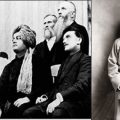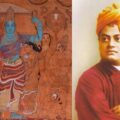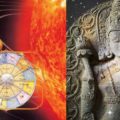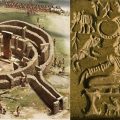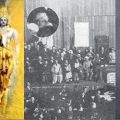Universal Religion: Swami Vivekananda’s Contribution to Spirituality

Introduction:
In my own light, I always feel one of the profound contributions of Swami Vivekananda to this modern world has been the concept of Universal religion. Religion, deeply ingrained in humane psychology and experience and societal frameworks, holds positive relevance amidst the rapid advancements in science and technology that are a hallmark of contemporary life. The world is now a global village; religion, as a crucial aspect of both individual and collective identity, is evolving through various phases. Conversely, the diversity of religious beliefs, rituals, philosophies, and practices frequently results in conflicts, intolerance, and violence. Vivekananda’s notion of universal religion presents a potential path towards peace and harmony by fostering a comprehensive understanding and respect of all faiths. This path does not require or compel individuals to abandon their beliefs; instead, the path focuses on spiritual realization and the unity inherent in all religions.
The concept of “Universal Religion” is rooted in Sankara’s Advaita Vedanta, and it promotes inclusivity and tolerance and rejects hatred, conversion, persecution, and feelings of superiority among faiths. The philosophy promotes non-dualism and emphasizes the oneness of humanity, making it particularly relevant in discussions about building global peace today.
I always feel that Swami Vivekananda Is one of the most influential spiritual leaders and philosophers in Indian and maybe global history. His contributions not only extend to the realms of spirituality, but they also extend to and are a combination of social reforms, education, and patriotism. Known for his profound thoughts and oratory skills, Vivekananda was in-depth influenced by his guru, Sri Ramakrishna Paramahamsa, who always encouraged a paradigm of free inquiry and service to humanity.
Vivekananda’s efforts can be segregated into two complete portions: first, to rejuvenate Hinduism and Vedanta philosophy, and second, to spark a revival of spiritual awareness through experience and introduce those ideas to the global stage. His teachings, rooted in the Indian Upanishads and ancient Indian philosophy, are still relevant and impactful today. Vivekananda’s religion transcends mere beliefs or rituals; it is fundamentally about spiritual realization. He advocated for a framework of spirituality grounded in universal love and non-dualistic understanding, which can resonate with people across various backgrounds.
This philosophy not only engages with metaphysical questions but also provides practical solutions to contemporary social and ethical challenges, reaffirming its relevance in today’s interconnected yet divided world.
Fundamental Conditions of Universal Religion:
Vivekananda articulated that a universal religion must fulfil at least two fundamental conditions:
1. Inclusivity: Its nature should be inclusive, welcoming individuals from all backgrounds and acknowledging that no one is inherently born into any specific religion. Individuals should be free to explore their inner inclinations and make their own choices.
2. Comfort and Satisfaction: Universal religion must provide comfort and satisfaction to followers of various religious sects. Hence, it must be continually expansive and accommodating enough to nourish and sustain the spiritual needs of all.
Universal Religion Beyond Traditional Faiths:
Vivekananda emphasized that universal religion is not merely an addition to the known religions such as Buddhism, Christianity, Islam, or Hinduism. Rather, he advocated focusing on the universal aspects of any religion to mitigate the detrimental effects of sectarianism. He was firmly convinced in his core that when humanity discards narrow perspectives and nonhumanitarian considerations inherent in religions, they will naturally evolve into universal systems. Thus, he articulated that every religion holds the potential to become a universal religion.
The Three Dimensions of Religion:
According to Vivekananda, the essence of religion encompasses three primary dimensions:
1. Philosophy: This aspect seeks to encapsulate the entirety of a religion, articulating its fundamental principles, objectives, and the means to achieve those objectives. Philosophy provides a framework for understanding the core tenets of faith.
2. Mythology: Mythology comprises legends that reflect the moral and spiritual journeys of both ordinary individuals and extraordinary beings. Vivekananda argued that mythology serves to concretize philosophical concepts by illustrating them through the stories of heroes and divine figures, thus making abstract ideas more relatable and comprehensible.
3. Ritual: Rituals consist of the forms and ceremonies that engage individuals in their faith and foster a sense of community among practitioners. These practices help organize followers into cohesive religious groups and provide structure to their spiritual lives.
Diversity Within Universal Religion:
In Vivekananda’s view, universal religion does not imply a singular philosophy, mythology, or ritual that is uniformly accepted by all. Instead, he envisioned a world where various religious traditions coexist and contribute to a collective understanding of spirituality. He acknowledged the necessity of diversity within religions, recognizing that such differences offer multiple pathways to spiritual fulfilment. Universal Religion, therefore, is envisioned as a collective spiritual framework accessible to all, transcending the limitations of any one particular group.
The Principle of Religious Universalism:
Central to Vivekananda’s teachings is the idea of religious universalism, which posits that all religions are fundamentally equal and true. He believed that the various external conflicts among religions often obscure the inherent unity that exists beneath the surface. By gaining insight into the nature of different faiths, one can recognize that they are not contradictory but rather complementary. Each religion, while focusing on specific aspects of the divine, contributes to a broader understanding of spirituality. Vivekananda emphasized that truth in religion is not static; rather, it evolves as humanity progresses from one understanding to a deeper, more comprehensive truth.
Illustrating Universal Religion:
Moreover, Vivekananda illustrated this perspective by likening religious viewpoints to photographs taken from different angles. Just as various photographs of the same subject can appear different or even contradictory, so too can the diverse interpretations of religious truths. However, these differing perspectives reflect the same underlying reality, thereby supporting the idea of universal religion as an existing phenomenon grounded in the universal brotherhood of humanity.
The Essence of Truth in Religion:
In his teachings, Vivekananda articulated that truth can be expressed in myriad ways, all of which hold validity. Although the paths of different religions may diverge, their ultimate goal remains unified: the reunion with the divine, which is the true essence of every individual. The overarching message of his philosophy is harmony, which he defined as unity rather than uniformity. Harmony, he asserted, cannot be achieved through a mere amalgamation of varying perspectives on the divine; rather, it arises from a shared understanding and respect for the multiplicity of beliefs.
Characteristics of Universal Religion:
A vital characteristic of universal religion is its foundation in universal tolerance. Vivekananda maintained that religion should be accessible and appealing to all, equally resonating with the emotional, mystical, philosophical, and practical dimensions of human experience. He promoted the cultivation of all four paths of Yoga—Karma Yoga (the path of action), Bhakti Yoga (the path of devotion), Jnana Yoga (the path of knowledge), and Raja Yoga (the path of meditation)—as ways to unite the individual soul with the Supreme Soul or God. The primary objective of this journey through Yoga is to discover one’s true essence and to acknowledge the fundamental interconnectedness that exists among all beings.
Conclusion:
To conclude, I would like to reference the speech delivered by Swami Vivekananda on September 11, 1893, at the inaugural World’s Parliament of Religions, held at the location of the current Art Institute.
“Sisters and Brothers of America,
It fills my heart with joy unspeakable to rise in response to the warm and cordial welcome which you have given us. I thank you in the name of the most ancient order of monks in the world, I thank you in the name of the mother of religions, and I thank you in the name of millions and millions of Hindu people of all classes and sects.
My thanks, also, to some of the speakers on this platform who, referring to the delegates from the Orient, have told you that these men from far-off nations may well claim the honor of bearing to different lands the idea of toleration. I am proud to belong to a religion which has taught the world both tolerance and universal acceptance. We believe not only in universal toleration, but we accept all religions as true. I am proud to belong to a nation which has sheltered the persecuted and the refugees of all religions and all nations of the earth. I am proud to tell you that we have gathered in our bosom the purest remnant of the Israelites, who came to Southern India and took refuge with us in the very year in which their holy temple was shattered to pieces by Roman tyranny. I am proud to belong to the religion which has sheltered and is still fostering the remnant of the grand Zoroastrian nation. I will quote to you, brethren, a few lines from a hymn which I remember to have repeated from my earliest boyhood, which is every day repeated by millions of human beings: “As the different streams having their sources in different paths which men take through different tendencies, various though they appear, crooked or straight, all lead to Thee.”
The present convention, which is one of the most august assemblies ever held, is in itself a vindication, a declaration to the world of the wonderful doctrine preached in the Gita: “Whosoever comes to Me, through whatsoever form, I reach him; all men are struggling through paths which in the end lead to me.”
Sectarianism, bigotry, and its horrible descendant, fanaticism, have long possessed this beautiful earth. They have filled the earth with violence, drenched it often and often with human blood, destroyed civilization and sent whole nations to despair. Had it not been for these horrible demons, human society would be far more advanced than it is now. But their time is come; and I fervently hope that the bell that tolled this morning in honor of this convention may be the death-knell of all fanaticism, of all persecutions with the sword or with the pen, and of all uncharitable feelings between persons wending their way to the same goal.”
References:
1. Lal, Basant Kumar. 1978. Cotemporary Indian Philosophy. Delhi: Motilal Banarsidass.
2. Chattopadhyaya, Iti 2015. “Universal Religion of Vivekananda: A way out of religious dimension’’. Journal of East Thought 5 (1): 73-79.
3. Tiwari, K.N. 2009. Comparative Religion. Delhi: Motilal Banarsidass.
4. The Complete Works of Swami Vivekananda, Vol-III, 2009, Page-301.
5. Vivekananda: The Great Spiritual Teacher, 2008, Page-185.
6. K. Dasgupta, Swami Vivekananda on Indian Philosophy and Literature, 2011, Page-188.
7. Vivekananda, Swami. Budha and his Message. Advita Ashrama, Kolkata, 1992.
Image source: Google.

